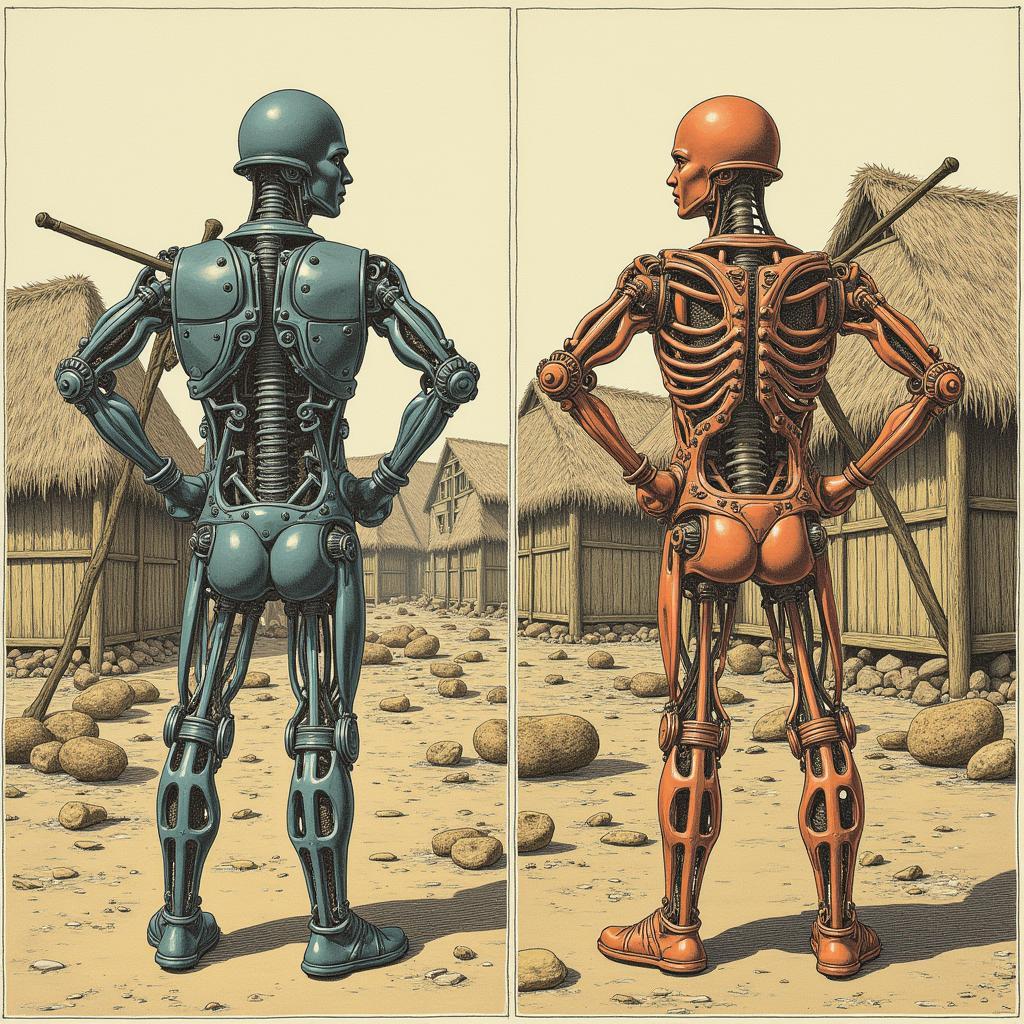Emile Durkheim Viewed Society As a complex system of interconnected parts working together to maintain stability and order. This perspective, known as functionalism, emphasizes the importance of social institutions like religion, education, and family in shaping individual behavior and contributing to the overall functioning of society. Understanding Durkheim’s view is crucial for grasping the foundations of modern sociology and how societies function.
Understanding Durkheim’s Functionalist View
Durkheim, a founding figure of sociology, believed that society is more than just the sum of its individuals. He argued that society has its own unique characteristics, influencing individual actions and shaping their beliefs. This concept, known as social facts, highlights the external forces that exert control over individuals. These forces, like laws, morals, and customs, are not created by individuals but are inherited and learned through socialization. They shape our behavior and create a sense of social cohesion.
For Durkheim, social order and stability were paramount. He saw society as an organism, where each part plays a vital role in maintaining the overall health and functionality of the whole. Just like a biological organism, if one part malfunctions, the entire system can be affected. He argued that shared values and beliefs, what he termed “collective conscience,” are essential for holding society together.
functionalist émile durkheim viewed society as
One of Durkheim’s key contributions was his study of social solidarity. He distinguished between two types: mechanical and organic solidarity. Mechanical solidarity exists in simpler societies where individuals share similar roles and beliefs, leading to a strong sense of collective identity. Organic solidarity, on the other hand, characterizes more complex societies with specialized labor divisions. In these societies, interdependence and reliance on others for fulfilling different needs create social cohesion.
Key Concepts in Durkheim’s Sociology
Several core concepts are crucial for understanding how Emile Durkheim viewed society:
- Social Facts: These external forces, including norms, values, and social structures, shape individual behavior. They are external to the individual and coercive, meaning they exert a certain level of control over our actions.
- Collective Conscience: This refers to the shared beliefs and values that bind a society together. A strong collective conscience is crucial for maintaining social order and preventing anomie, a state of normlessness.
- Anomie: This occurs when social norms and values weaken or break down, leading to social instability and a sense of disorientation. Durkheim argued that rapid social change can contribute to anomie.
- Social Solidarity: The bonds that unite individuals within a society. Durkheim distinguished between mechanical solidarity, based on similarity, and organic solidarity, based on interdependence.
 Emile Durkheim's concept of social solidarity visualized
Emile Durkheim's concept of social solidarity visualized
How Did Emile Durkheim View Society and Religion?
Durkheim saw religion as a fundamental social institution contributing to social cohesion. He believed that religious rituals and beliefs reinforce the collective conscience and provide a sense of belonging. In his seminal work, “The Elementary Forms of Religious Life,” he argued that religion is not just about individual faith but also about social bonding. Religious practices, like rituals and ceremonies, create a shared experience that strengthens social ties and reinforces shared values.
The Relevance of Durkheim Today
Emile Durkheim’s insights remain relevant today. His work helps us understand how societies function, how social order is maintained, and the impact of social change on individuals. His concepts of anomie, social solidarity, and social facts offer valuable tools for analyzing contemporary social issues, including crime, inequality, and the challenges posed by globalization.
Conclusion: Durkheim’s Enduring Legacy
Emile Durkheim viewed society as an intricate web of interconnected parts, each contributing to the overall functioning of the whole. His functionalist perspective emphasizes the importance of social institutions and shared values in maintaining social order and cohesion. By understanding how Emile Durkheim viewed society, we can gain a deeper understanding of the social forces that shape our lives and the challenges facing societies today.
functionalist émile durkheim viewed society as
FAQ
- What is the core principle of Durkheim’s functionalism? Society functions like an organism, with interdependent parts working together.
- What are social facts according to Durkheim? External forces like norms and values that shape individual behavior.
- What is anomie? A state of normlessness resulting from the breakdown of social order.
- What are the two types of social solidarity? Mechanical, based on similarity, and organic, based on interdependence.
- How did Durkheim view religion? As a social institution that strengthens collective conscience and social cohesion.
- Why is Durkheim’s work still relevant today? His theories help us analyze contemporary social issues and understand social change.
- What is an example of a social fact? Laws, customs, and moral codes.
Common Scenarios and Related Questions
- Scenario: Rapid social change leading to increased crime rates. Related Question: How does Durkheim’s concept of anomie explain this phenomenon?
- Scenario: Breakdown of traditional family structures. Related Question: How does this affect social solidarity according to Durkheim?
- Scenario: Increasing polarization and division within a society. Related Question: How can Durkheim’s insights on collective conscience inform strategies for promoting social unity?
Further Exploration
For more information on related topics, explore other articles on our website, such as “[Understanding Social Solidarity]” and “[The Role of Religion in Society]”.
Contact Us
For further assistance, please contact us at Phone Number: 02043854663, Email: [email protected] or visit our office at Zone 34, Bac Giang, 260000, Vietnam. Our customer service team is available 24/7.